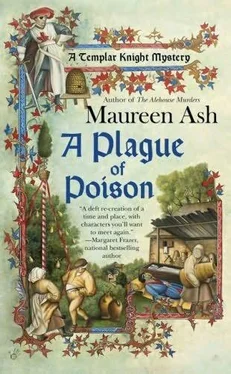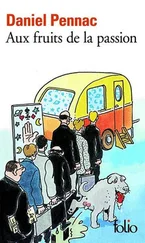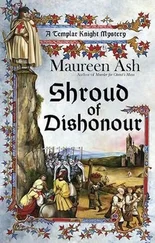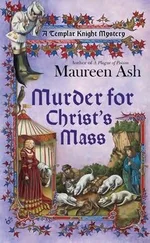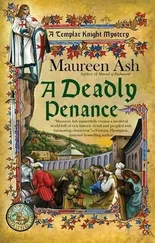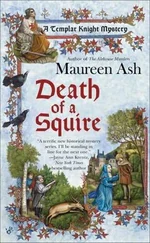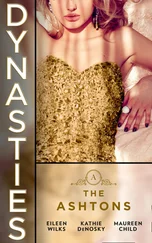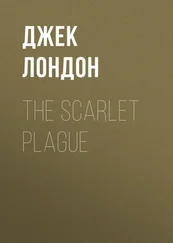Maureen Ash - A Plague of Poison
Здесь есть возможность читать онлайн «Maureen Ash - A Plague of Poison» весь текст электронной книги совершенно бесплатно (целиком полную версию без сокращений). В некоторых случаях можно слушать аудио, скачать через торрент в формате fb2 и присутствует краткое содержание. Жанр: Исторический детектив, на английском языке. Описание произведения, (предисловие) а так же отзывы посетителей доступны на портале библиотеки ЛибКат.
- Название:A Plague of Poison
- Автор:
- Жанр:
- Год:неизвестен
- ISBN:нет данных
- Рейтинг книги:3 / 5. Голосов: 1
-
Избранное:Добавить в избранное
- Отзывы:
-
Ваша оценка:
- 60
- 1
- 2
- 3
- 4
- 5
A Plague of Poison: краткое содержание, описание и аннотация
Предлагаем к чтению аннотацию, описание, краткое содержание или предисловие (зависит от того, что написал сам автор книги «A Plague of Poison»). Если вы не нашли необходимую информацию о книге — напишите в комментариях, мы постараемся отыскать её.
A Plague of Poison — читать онлайн бесплатно полную книгу (весь текст) целиком
Ниже представлен текст книги, разбитый по страницам. Система сохранения места последней прочитанной страницы, позволяет с удобством читать онлайн бесплатно книгу «A Plague of Poison», без необходимости каждый раз заново искать на чём Вы остановились. Поставьте закладку, и сможете в любой момент перейти на страницу, на которой закончили чтение.
Интервал:
Закладка:
Bascot told the brothers that he was on his way to speak to the castellan, and together the trio went into the keep and up the stairs of the tower in which Nicolaa’s chamber was located. She was in the midst of dictating letters to John Blund when Bascot and the two monks arrived; the pot of poisoned honey was still sitting on her desk. The secretarius immediately rose from his seat at the small lectern and began gathering up his papers, but Nicolaa forestalled him and told him to remain where he was.
“I should like you to take note of any salient points that Brother Jehan may be able to give us, John, in case we should want to review them later.”
As the secretary reseated himself and placed a fresh sheet of parchment on his desk, Nicolaa thanked the infirmarian for his prompt answer to her summons, and then, explaining that her throat was sore from her ailment, asked Bascot to tell the two monks what little information they had concerning the deaths of the clerk and Simon of Haukwell.
“The poison that was used appears to act quickly once it is ingested,” he said, “and is extremely virulent.” He then went on to describe the symptoms that had afflicted the rodent after eating the honey-soaked bread. “Although Thorey told us that rats do not usually vomit, some foam did appear around its mouth, and both Haukwell and Ralf purged extensively before they died.”
“There are many poisons that have a similar effect,” Jehan said reflectively. He was an elderly man, with a slow and sonorous manner of speaking and a frail appearance that belied his inner fortitude. “However, as we were coming across the bail, we spoke to the rat catchers. They expressed their opinion as to the nature of the poison, and I think I can tentatively agree with their observation.” He looked across at Brother Andrew who nodded in agreement.
Nicolaa’s eyebrows rose. “The rat catchers know the type of poison that was used? Why was I not informed?”
Jehan gave a slow smile. “Such knowledge could be considered as incriminating, lady. The catcher here in the castle-Thorey, I believe his name is-was careful to explain to me that after watching the effects of the poisoned honey on the rat, he believes it contained a venom that is used by many of those who follow his trade. While assuring me that he does not use the substance himself, or indeed any other type of poison, he feared that it might be thought he was the perpetrator of the crime.”
“I see,” Nicolaa nodded. “It is true that I have forbidden him to use such a means to rid the castle of rats. When I was a child, the catcher my father employed was in the habit of using poison to kill rodents, and one of my father’s favourite hounds accidentally ate some poison and died. My father was so angry that the catcher was lucky to escape with his life. Afterwards, my father forbade all of his catchers to use any type of venom, and I have followed that dictate. Thorey, as far as I am aware, uses only his dogs and traps baited with untainted food for his purpose. He would be dismissed if he did otherwise.”
She returned Jehan’s smile. “And so his concern that he may be blamed is understandable. There was a great display of anger against my cook, even though it is not certain he is guilty. Thorey would have known that and feared the same suspicion might fall on him.”
Bascot motioned to the earthenware pot. “That is the pot that contains the poisoned honey. What is it that Thorey-and you-believe to have been used to adulterate it?”
“It is a common ingredient in rat poison, Sir Bascot,” Jehan explained, “and is extracted from a plant whose Latin name is Helleborus niger but is more commonly called the Rose of Christ. The plant blossoms about the time of the celebration of Christ’s holy Mass, and the leaves of it, in pagan days, were used in a ceremony to bless cattle and protect them from evil spirits. Other than as a means to destroy vermin, it is sometimes used in a beneficial manner, as a tincture to assist in the purging of parasites or to restore the balance of humours in women, but it is a very dangerous medicant and must be administered with great caution. Most apothecaries would not recommend it for any purpose other than to kill rodents.”
“But it is available for purchase from an apothecary?” Bascot asked.
“Oh yes,” Jehan replied. “The usual customers would be rat catchers, but any householder who wishes to forego the catcher’s fee could buy it to use himself.”
“It can also be made by any who know how to do so,” Brother Andrew added. “In the countryside, where the services of an apothecary or a rat catcher may not be available, I am sure there are many wisewomen who possess the knowledge to make it.” The younger monk’s speech was quicker than his elderly companion’s and contained a lilting accent that was not common to the Lincoln area.
Nicolaa and Bascot exchanged glances. If the poison was one that could easily be purchased or made, it would not make their task of finding the poisoner an easy one. “Are you certain, Brother, that this is the poison that was used?” Bascot asked Jehan.
“Reasonably so,” he assured him. “But it may be easier to confirm that it was truly Helleborus niger if there was another person nearby when either of the two victims was first taken ill. There are certain symptoms that are peculiar to this poison, and if they were present, it would eliminate the possibility that it could be venom of another type.”
Nicolaa spoke to her secretary, who was busy writing down what Jehan had said. “You were with Ralf just before he died, were you not, John?”
Blund laid his quill aside. “Yes, lady, I was. Only for a few moments, though.”
“Were you in his presence before he began to vomit?” Jehan asked.
“No,” Blund replied. “When I arrived he was lying on the floor and was near death.”
Jehan and Andrew both shook their heads. “Soon after the poison is ingested, and before it acts upon the contents of the stomach and bowels, it will cause an excessive flow of saliva and a tingling sensation in the mouth which usually results in slurred speech. Unfortunately, you arrived too late to see if this was so with your clerk, Master Blund.”
“What of Thomas, Haukwell’s squire?” Bascot suggested. “He said he served his lord with more than one cup of the poisoned wine; it may be that he noticed these symptoms.”
Nicolaa despatched John Blund to fetch the squire, and while they waited, Bascot asked the two monks how long a poison made from Helleborus niger would remain potent. “There is a possibility that the honey was adulterated some time before the pot was opened,” he explained. “If the venom deteriorates with the passage of time, it may help us to determine when the pot was contaminated.”
“It would not lose any of its strength with age,” Andrew replied. “It might even become more vigorous, aided by fermentation in the honey.”
“That is not good news,” Bascot said regretfully. “It means that, as we feared, the poison may have been added to the honey at any time since it was harvested from the combs.”
When Blund returned with the squire, Jehan asked him if he had been in company with Haukwell before he was taken ill. “Yes,” Thomas replied. “After I brought him the wine, I sat with him in conversation while he drank it.”
“Did he show any signs of discomfort before he began to purge?” Andrew asked.
Thomas thought for a moment. “Not discomfort, but I did think that the wine seemed to affect him more quickly than usual.”
“How so?” Andrew enquired.
“His speech became slow, and he kept wiping his face and mouth on his sleeve as though he were hot. It was almost as though he were cupshotten.” The squire’s young face grew thoughtful. “Sir Simon was not a winebibber. He often cautioned myself and the other squires to beware of the excesses of strong drink, saying it would cloud our judgement on the battlefield. Because of that, I was a little surprised that he would allow himself to be overblown with wine, but when he finished his last cup and said he felt very tired, I thought that perhaps his manner was due to the heaviness of the meal he had eaten earlier. After he retired, I went to my own pallet, which was laid only a little way from his. It was just minutes later that he began to vomit.”
Читать дальшеИнтервал:
Закладка:
Похожие книги на «A Plague of Poison»
Представляем Вашему вниманию похожие книги на «A Plague of Poison» списком для выбора. Мы отобрали схожую по названию и смыслу литературу в надежде предоставить читателям больше вариантов отыскать новые, интересные, ещё непрочитанные произведения.
Обсуждение, отзывы о книге «A Plague of Poison» и просто собственные мнения читателей. Оставьте ваши комментарии, напишите, что Вы думаете о произведении, его смысле или главных героях. Укажите что конкретно понравилось, а что нет, и почему Вы так считаете.
